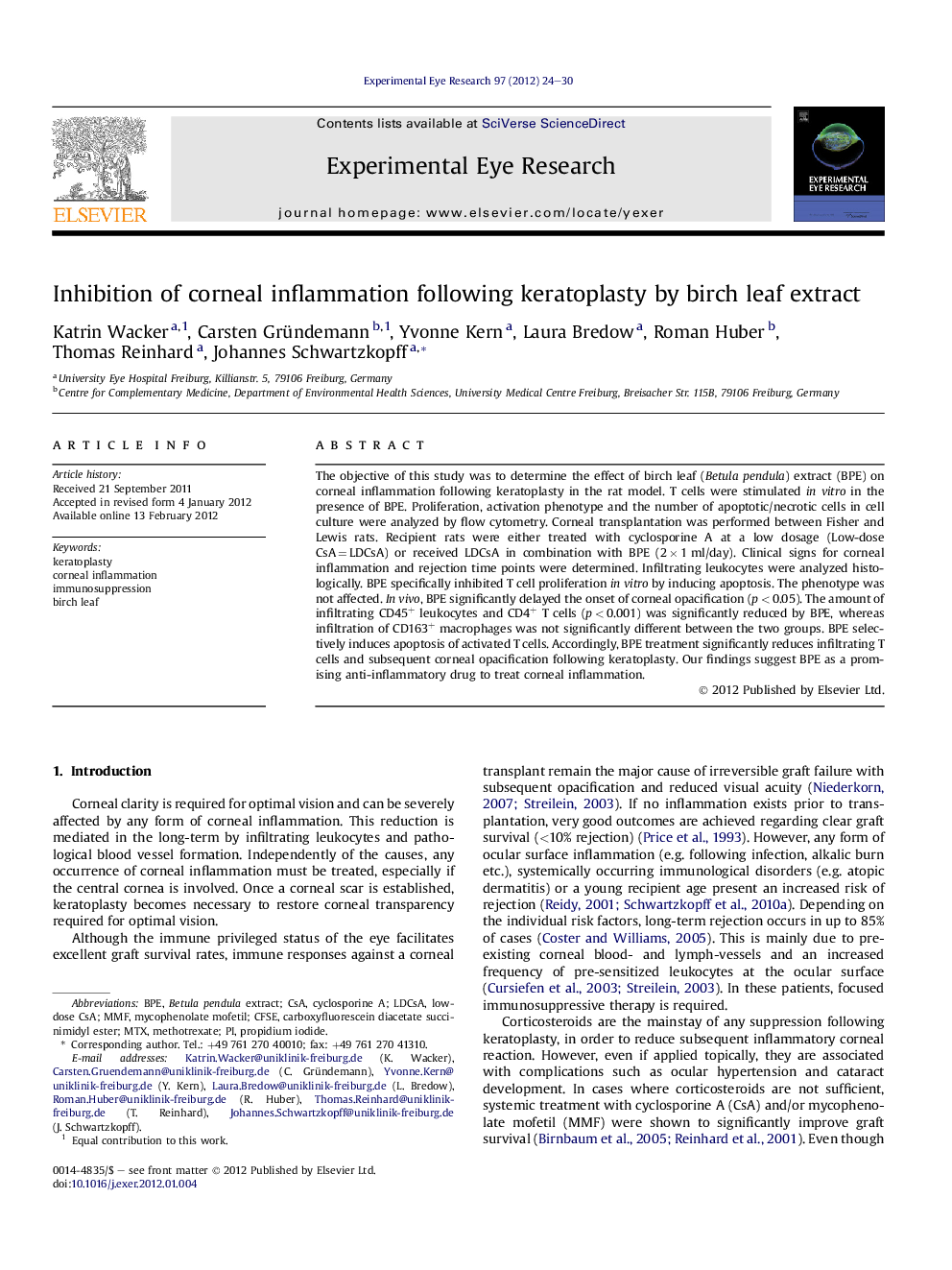| Article ID | Journal | Published Year | Pages | File Type |
|---|---|---|---|---|
| 6197361 | Experimental Eye Research | 2012 | 7 Pages |
The objective of this study was to determine the effect of birch leaf (Betula pendula) extract (BPE) on corneal inflammation following keratoplasty in the rat model. T cells were stimulated in vitro in the presence of BPE. Proliferation, activation phenotype and the number of apoptotic/necrotic cells in cell culture were analyzed by flow cytometry. Corneal transplantation was performed between Fisher and Lewis rats. Recipient rats were either treated with cyclosporine A at a low dosage (Low-dose CsA = LDCsA) or received LDCsA in combination with BPE (2 Ã 1 ml/day). Clinical signs for corneal inflammation and rejection time points were determined. Infiltrating leukocytes were analyzed histologically. BPE specifically inhibited T cell proliferation in vitro by inducing apoptosis. The phenotype was not affected. In vivo, BPE significantly delayed the onset of corneal opacification (p < 0.05). The amount of infiltrating CD45+ leukocytes and CD4+ T cells (p < 0.001) was significantly reduced by BPE, whereas infiltration of CD163+ macrophages was not significantly different between the two groups. BPE selectively induces apoptosis of activated T cells. Accordingly, BPE treatment significantly reduces infiltrating T cells and subsequent corneal opacification following keratoplasty. Our findings suggest BPE as a promising anti-inflammatory drug to treat corneal inflammation.
⺠Birch leaf extract (BPE) inhibits activated T cells in vitro by specifically inducing apoptosis. ⺠The phenotype of surviving T cells is not affected in vitro. ⺠Intraperitoneal injection of BPE has no obvious negative side effects. ⺠BPE significantly reduces corneal inflammation following keratoplasty clinically and histologically.
